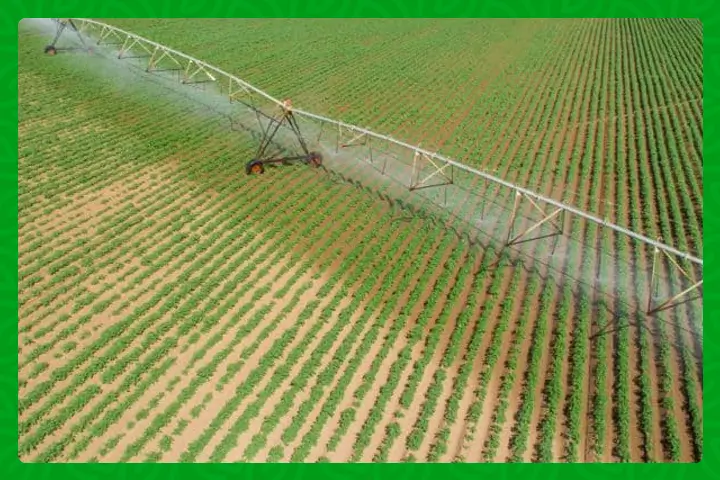
In a resolute stride towards achieving food security and self-sufficiency, Namibia is embarking on an ambitious journey. The Ministry of Agriculture, Water, and Land Reform is diligently crafting an Irrigation Master Plan, a strategic blueprint that will revolutionize the nation’s agricultural landscape. This plan is not just a document; it’s a vision for the future, a commitment to harnessing the power of irrigation to transform the country’s agricultural potential.
Charting Progress Through the Irrigation Master Plan
The Deputy Minister of Agriculture, Water, and Land Reform, Anna Shigwedha, stands at the forefront of this agricultural transformation. She emphasizes the core purpose of the Irrigation Master Plan – to monitor and enhance the development of additional hectares of land under irrigation. This is a pivotal step towards ensuring a more reliable and bountiful agricultural future for Namibia.
Unveiling Namibia’s Irrigation Potential
One of the key revelations within the Irrigation Master Plan is the identification of 52,000 hectares of potential irrigable land within Namibia. This vast expanse of arable land forms the foundation for the establishment of green scheme projects. The government’s efforts have been dedicated to developing 27,000 hectares for irrigation purposes by 2030, with a substantial 11,000 hectares already flourishing under irrigation countrywide. These green schemes are a testament to Namibia’s commitment to fostering agricultural growth and food production.
Diversifying Irrigation Techniques for a Sustainable Future
Namibia’s climate and soil conditions pose unique challenges, but they also inspire innovative solutions. The government’s vision encompasses a variety of irrigation systems suitable for the Namibian context. While drip irrigation stands out as one of the most efficient systems, delivering optimal water use efficiency and crop yields, the government acknowledges the initial capital investment required and the susceptibility to clogging in saline soils. Furthermore, drip irrigation is ideally suited for horticultural crops but may not be the best choice for cereals. Namibia’s commitment to diversifying irrigation techniques highlights a holistic approach towards enhancing agricultural productivity.
Complementing Rain-Fed Crop Production
Namibia’s climate, characterized by aridity and unpredictable rainfall patterns, necessitates a comprehensive approach to agriculture. To bridge the food security gap, the government has proactively promoted cereal and horticultural production under irrigation. This strategy complements rain-fed crop production and accelerates the nation’s journey towards self-sufficiency. The ultimate goal is to close the current food import gap and fortify the country’s food security.
Making Irrigation Accessible to All
In the pursuit of a greener agricultural landscape, Namibia is committed to ensuring that irrigation technology is accessible to all. For small-scale farmers, the government subsidizes drip irrigation, making it an affordable and common technology. Commercial farmers, on the other hand, lean towards advanced irrigation systems like pivots and sprinklers.
Conclusion
Namibia’s Irrigation Master Plan is not just a document; it’s a visionary roadmap towards a more sustainable and productive agricultural future. The nation is poised to harness its vast irrigation potential, diversify irrigation techniques, and bridge the food security gap. With the commitment of the government and the unwavering spirit of Namibia’s agricultural community, the journey towards a greener tomorrow has already begun. The Irrigation Master Plan is a testament to a nation’s determination to thrive and prosper through agriculture.
Stay updated with the latest farming tips and agriculture industry news from Africa by subscribing to our newsletter. Don’t miss out on valuable insights and updates. Follow us on Twitter, LinkedIn, and Facebook to join our farming community and stay connected with us.



















